As his hands dance across his piano, the power of the music takes control over the room and all of its contents. The notes ingrained in his head provide a map for the artwork that he generates. Once junior Jack Finney removes his hands from the piano to conclude his piece, it’s no secret to all those close enough to hear his music that the talent that Jack possesses sets him apart.
Jack’s complex musical connection entails perfect pitch: a musical talent where a person is able to recognize the pitch of a note upon hearing it. It expedites the process of learning music substantially.
“I’m still developing perfect pitch, but I noticed I could hear something and play it back,” Jack said. “It’s nice because you can play any song and you don’t have to keep repeating it to learn how to play the song.”
Only 0.01% of the world’s population possess perfect pitch. Although perfect pitch is a natural gift, it requires lots of hard work and rehearsing to maintain it.
“It takes a lot of practice to develop it,” Jack said. “I couldn’t just hear something instantly and know what note it was. I had to develop that skill.”
Jack transferred to Ladue from Saint Louis University High School at the beginning of second semester. However things didn’t go as planned once he transitioned.
“About two to three weeks [into my time at Ladue], I was sitting across from one of my friends at lunch,” Jack said. “I started talking to him and all of a sudden, I completely forgot his name. I had no idea where I was. It was the most strange thing.”
Jack Adams, who was sitting across from Jack during this incident, was unsure of what to think of the situation.
“We all [said], ‘You sure you’re okay?’” Adams said. “Because he was new to the school at the time, we thought he just forgot it, because he hasn’t been here that long.”
The rest of the day was somewhat of a blur for Jack. After school, he vomited several times and was rushed to urgent care, where he lost all consciousness.
“I wake up [in the hospital], and there’s this guy over me and he’s crying and I’m really confused,” Jack said. “He’s asking me, ‘Jack, what is my name? Jack, what is my name?’ My next memory is this woman is over me. She gets up and she yells across the room that I’m shivering. I have no idea who either of these people are. It turns out that they were my mom and my dad.”
In early January, Jack was diagnosed with viral meningitis, an infection of the fluid and membranes surrounding the brain and spinal cord. He spent the next two weeks in the Intensive Care Unit while in critical condition.
“This guy is talking to my parents and all of a sudden my mom yells and is on her knees crying,” Jack said. “What the doctor told my parents was that I only had a 30% chance of living. They didn’t think I would make it because my brain started bleeding and they couldn’t get it to stop.”
Joan Steuby-Finney, Jack’s mother, stayed in the ICU day and night. She slept on a recliner, watching over him, just as her parents did for her when she had been sick.
“When I was 22, I had bacterial spinal meningitis that almost killed me,” Joan said. “It’s much easier to be in the bed than it is to watch someone be in the bed. To watch him go through it as a mother and to not be able to fix it was excruciating.”
Jack was in the ICU throughout all of his hospital stay due to the severity of his disease. He warranted the attention of many distinguished neurosurgeons in the area.
“The neurosurgeons would come in every hour and ask questions,” Joan said. “Many days [Jack] would get his name, but he wouldn’t know where he was or who the president was. That’s pretty devastating because it’s one thing to have a child that broke an arm, but it’s different to have a child whose brain is damaged. When he started to figure out where he was, we thought it was like he was Einstein. That was the first glimmer of hope that he was going to make a recovery.”
Once Jack began to regain his mental awareness, the outlook on his situation changed drastically. Although the infection had a 30% survival rate, Jack stayed persistent.
“Somehow, I was able to push through and my brain started to progress and started to heal,” Jack said. “Then, it eventually stopped bleeding. They didn’t have to do any brain surgery at all, and ever since then, I’ve just been progressing.”
Miraculously, Jack survived his battle with meningitis and was released from the hospital in February.
“[After I got out of the hospital], I didn’t really have anything to do,” Jack said. “My dad asked if I wanted to play an instrument. I [said], ‘What about the piano?’ So we went to Costco and found a piano that was on sale. We bought that and I learned the song “Up” within ten seconds. Since then, I’ve just been learning new songs and posting them on the internet.”
Before his diagnosis with meningitis, Jack had no connections to perfect pitch and few ties to music in general. Jack’s newly discovered abilities were no secret to his peers. As he further progressed, it was clear that he had much more than just talent. Jack was a musical prodigy.
“My perspective changed when I quickly picked up “Moonlight Sonata,” which is one of the most challenging piano pieces of all time,” Jack said. “I picked it up within a couple of weeks, and it usually takes people years. Ever since then, I’ve just been working on mastering perfect pitch.”
Although no one quite understands it, Joan is grateful that the experience resulted in this musical phenomenon.
“A part of his brain got unlocked that wasn’t unlocked before,” Joan said. “It’s like this part of a highway, a bomb went off, so now you can’t go down that pathway anymore. His brain has created all these new pathways and Jack’s success with piano is the end result of it.”
Jack never anticipated his passion for music stemming from an experience as daunting as meningitis. Even though Jack’s journey to discovering his love for music was not ideal, the benefits that came out of it have forever changed his and his family’s perspective on life.
“It’s given Jack a level of maturity that he couldn’t have gotten any other way,” Joan said. “It’s not really the road you would ever ask for, but it’s the silver lining.”
The variety of music genres that Jack listens to have also expanded ever since his passion for piano began.
“I was a big rap guy [before I got sick],” Jack said. “I still listen to J Cole and [Playboi] Carti, but other than that, it’s become kind of boring. I’ve expanded my music taste. I’ll listen to 80s rock, Rolling Stones, Fleetwood Mac, and other artists I probably wouldn’t have listened to before.”
Jack’s refuge in music continues to skyrocket. Practicing and his commitment to piano fuel him more and more each day to not only improve his skills, but also to develop an identity through his love for music.
“[Music] allows me to express my emotions with people,” Jack said. “I definitely think that I can express my identity through music.”
Although Jack is not fully sure where music will lead him, he can’t imagine a future without piano.
“I would love to play for the symphony, but that’s definitely a very challenging profession,” Jack said. “If not, I would just love to play [piano] on the side of my job.”
Jack’s individuality has become largely more complex through his unique experiences since his diagnosis. Music has become a forever guidance for Jack and provided him with a new outlook on life that he lacked before.
“Don’t take anything for granted because tomorrow is not guaranteed,” Jack said. “Try new things [and] be open-minded because you’re only given one life.”


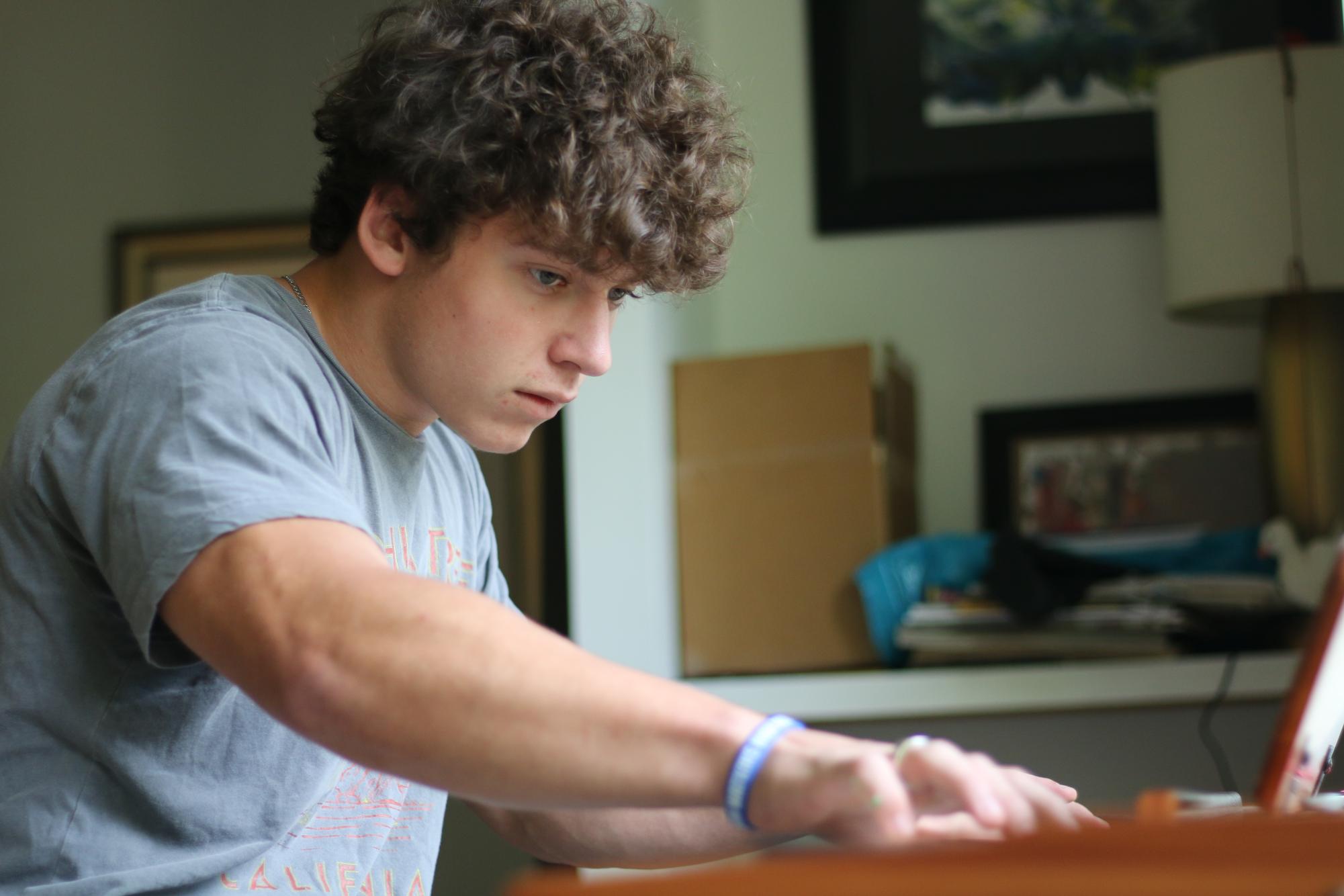
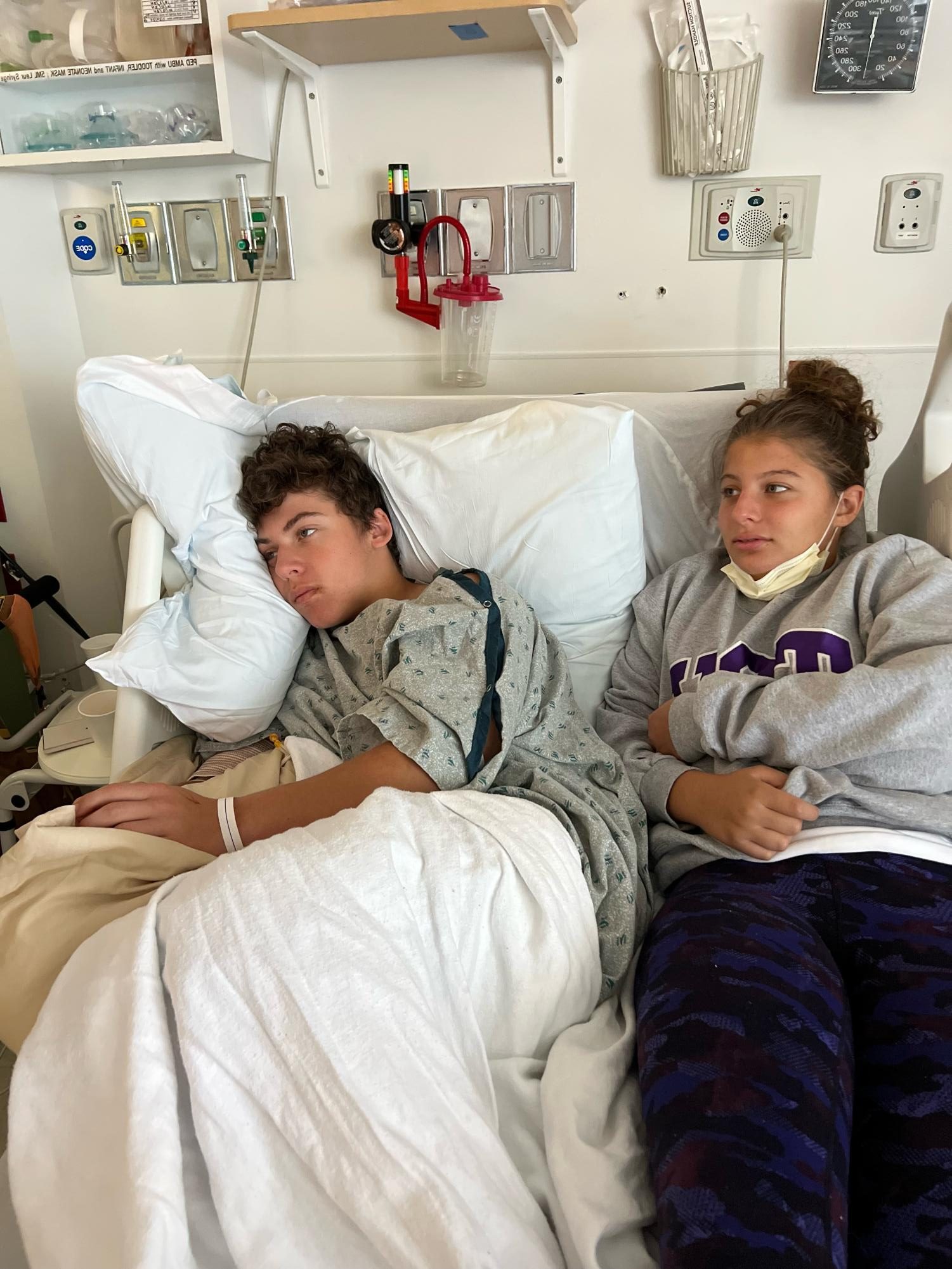
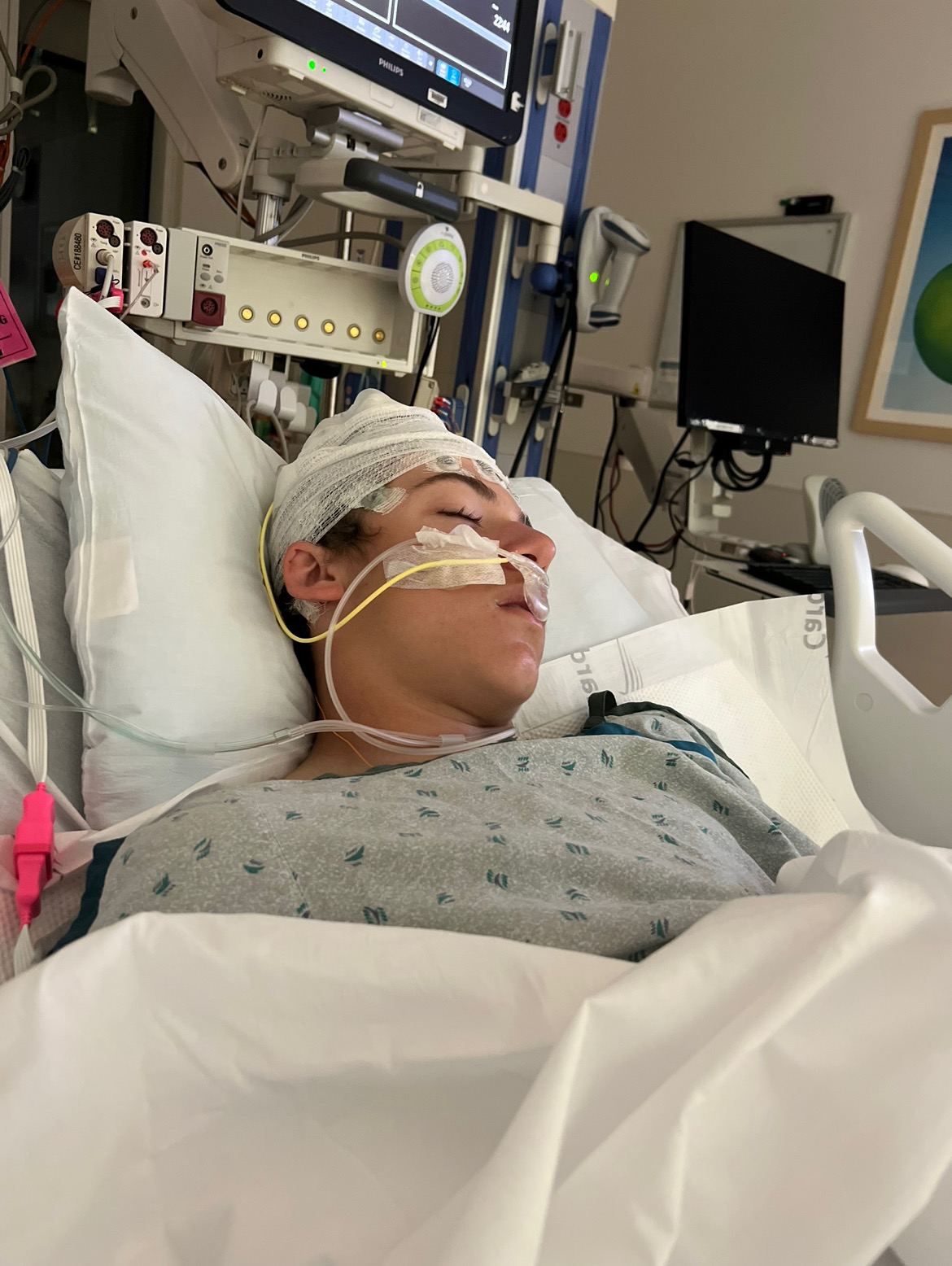


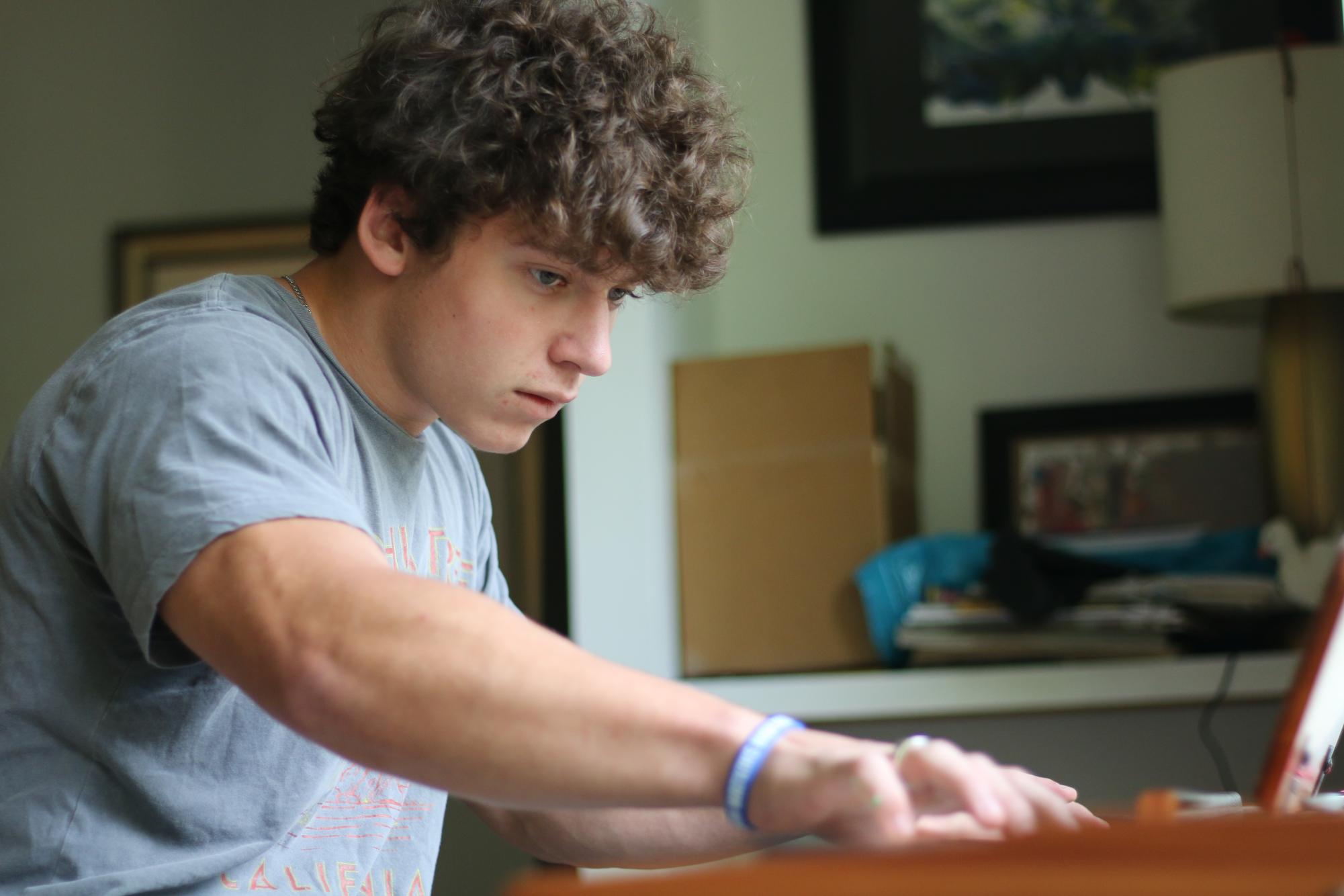









![School resource officer Rick Ramirez sits in his office. He usually spends little time in his office throughout his day of work, focusing on other issues. “Where our students are, I try to be,” Ramirez said. “Sometimes I get off at 2:45 p.m. when nothing’s going on, or sometimes I get off at 10 p.m. [Those are] my hours.”](https://laduepublications.com/wp-content/uploads/2024/12/Hsiao_20241203_ID_RickRamirez_007-799x1200.jpg)
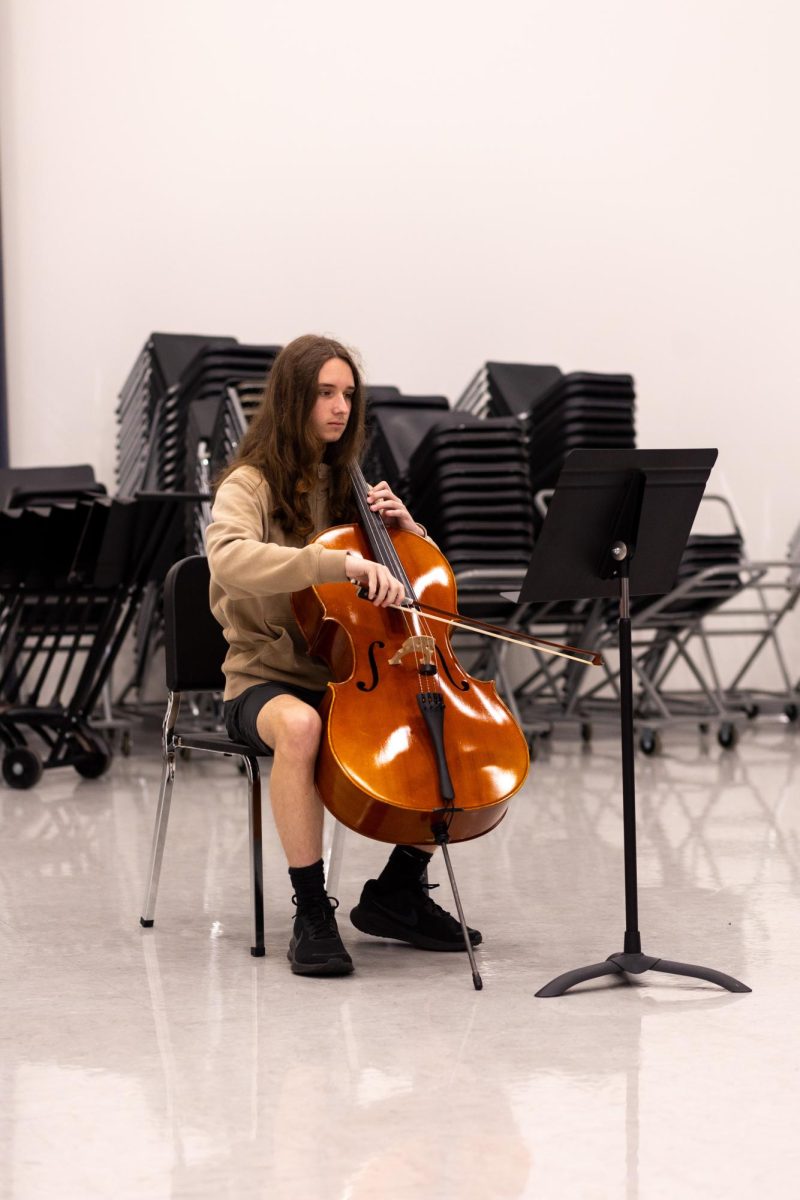
![Reva poses in front of her home and address plaque. After reuniting with her father and grandparents, she has made many new memories and retained her culture. “We have a lot of Indian cooking going on,” Reva said. “I also like telling people about Indian food, mainly because that’s something that really connects me to [Mumbai].”](https://laduepublications.com/wp-content/uploads/2024/12/At-Home-1200x799.jpg)




Joan • Jan 19, 2024 at 10:18 pm
Wow! Very well written!